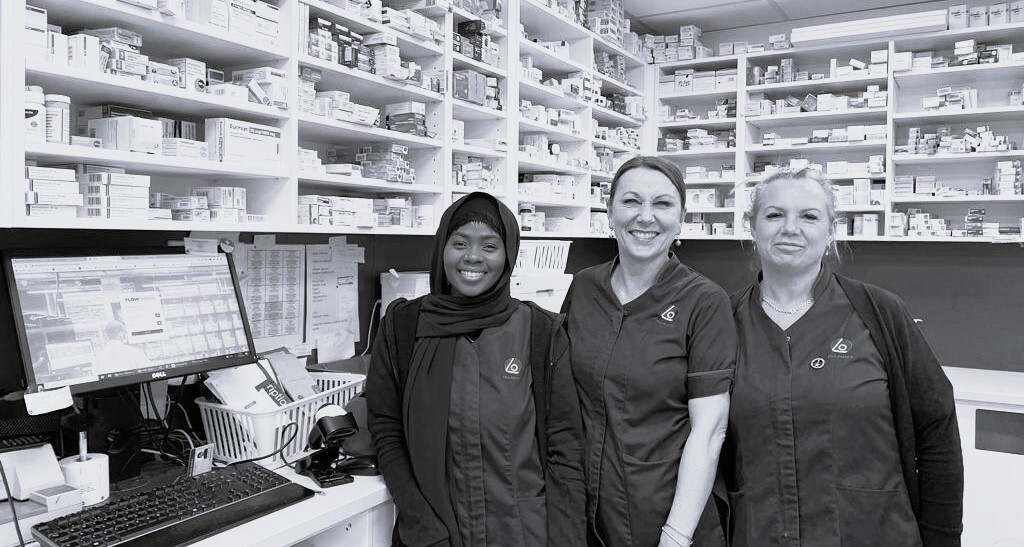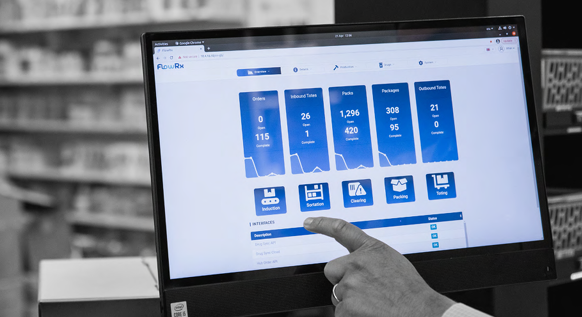It’s over six months since the consultation regarding hub and spoke dispensing for pharmacy came to an end. So what’s been happening since, what will happen next and what still needs to be considered? Centred Solution’s Sales and Marketing Director, Louise Laban, takes a closer look.
It has been discussed on and off for years, but could 2023 finally be the year that the long awaited proposed legislation around hub and spoke dispensing finally becomes a reality for pharmacy? There has been little update on where we are with the legislation since the Department for Health and Social Care (DoH) held a new consultation into the proposal in the summer of 2022. A lot has happened since then including the appointment and subsequent replacement of several Health Secretaries as well as continuing pressures in community pharmacies up and down the country.
One of the biggest pressures that has come to the fore since the consultation ended is the shortage of medicines. We ended last year with a serious shortage of several antibiotics and we’ve started 2023 with a major shortfall of cold and flu medicine – not helped in anyway by the “twindemic” of both Covid-19 and Flu and an increase in Strep A. Empty shelves within pharmacy have become a familiar sight and even when stock became available we heard several stories of prices being inflated as demand grew. Despite this, calls for DoH to meet with key stakeholders to address the medicine shortage issues seem to have all but fallen on deaf ears.
What the shortage of medicines has done is highlight the importance of medication supply, one of the issues raised in the hub and spoke consultation last year. Respondents were asked whether the proposed legislative changes should allow for the supply of medicines from the spoke to the hub in as well as from the planned hub to spoke distribution route. At the time, our Centred Solutions response to that question was that it should be considered as a potential enabler for hub and spoke dispensing arrangements. My view now is that is more important than ever. We’ve seen over the past few months just how fragile the pharmacy supply chain is, particularly when put under pressure. That is why it is more important than ever to have as many potential supply options as possible for medication to ensure fulfilment of patient prescriptions. In the situation of hub and spoke, allowing the spoke to supply to the hub would mean that a store could send medication to the hub that they may not have in stock and which may be required for a patient at another spoke.
Another key element to the success of hub and spoke, which was never raised in the consultation or associated impact assessment, is consistency of drug data. Supporting how the medication items are generated from the PMR and end up at the hub for processing is crucial. Put simply, the barcode on the medicine box has to match the correct drug, strength, package size and manufacturer and this needs to be applied consistently across the market.
Unanswered questions that still need to be considered are how a new product or a parallel import are correctly labelled and having a standard code used for association, be that PIP, AMP, AMPP, VMP or VMPP or even a combination. From our work with customers to date we estimate that the DM+D medicines database only has about 60% of what is needed – a long way from the 100% required. In fact the database itself states their data is “not to be relied on for dispensing.” To further complicate the supply situation, wholesalers use codes differently and some even have their own proprietary systems. While PMR providers do have a lot of the data, they don’t have everything. A consistent and enforced approach is needed to enable the success of hub and spoke dispensing. The impact assessment was heavily focussed on equipment costs and investment but the focus should equally have been on accuracy and efficiency. Even though Centred Solutions has significantly lowered acquisition costs than those stated in the impact assessment, we primarily sell our product on accuracy and efficiency. In our experience, once pharmacies understand the total business proposition and what the solution means to their operation, the cost of the equipment is one of the last things considered and rarely negotiated.
We included our concerns around data accuracy in our response to the consultation and we hope this is picked up by DoH as they work their way through the large number of responses we are sure they have received from individuals and organisations. The proof will be in the pudding when we see the published response to the consultation, hopefully within the next few months.
But even when the response is published, don’t expect to see any changes straight away. Before anything further happens, under the Medicines and Medical Devices Act 2021 the secondary legislation will then need to be debated in both the House of Commons and the House of Lords, as well as the Northern Ireland Assembly.
Despite the lengthy wait for the legislation, we’ve seen a number of multiple and independent pharmacies getting ahead of the game by already installing and operating hub and spoke models for repeat prescription dispensing within their own pharmacies. Throughout 2022 we saw significant uptake of the model with pharmacies investing in automation and becoming early adopters ahead of the proposed legislation changes. We started 2022 with just two customers and ended the year with nine – that’s incredible growth considering hub and spoke is still in its infancy in the UK.
Among those now using variations of the FLOWRx Hub automated solution in centralised dispensing facilities, where medication is dispensed for the pharmacy spokes, are Paydens Pharmacy, Medipharmacy, Pearl Chemist Group, Lalys Pharmacy, Peak Pharmacy and Sigcare. Our latest installs took place last month at AR Pharmacy and Lo’s Pharmacy and we have another hub install taking place this month as well as some exciting partnerships to announce later in the year.
It is no coincidence this flurry of installs has happened following the consultation into hub and spoke. It’s great to see pharmacy getting one step ahead and looking beyond the DoH impact assessment to discover that you don’t need to be one of the larger pharmacy groups to benefit from a hub and spoke model.
The beauty of our solution is that it is scalable so it can be implemented in stages at a relatively low cost. Taking the first step on the journey is enough to impact and grow your business, freeing up capital to then invest in the next level of automation. There really are options out there for everyone, that will allow pharmacy to automate dispensing and operate more efficiently. And with just a couple of months left to benefit from the super tax deduction rate, where you can save up to 25p for every £1 you spend, there couldn’t be a better time to buy.
Pharmacy Automation By Centred Solutions
At Centred Solutions, we offer a range of pharmacy automation software to support your pharmacy. Whether you are a standalone pharmacy that could benefit from your own mini hub or you need support managing patient medication from a wholesaler or warehouse, we have the solution for you.
Contact us today to arrange a demonstration of any of our products.




